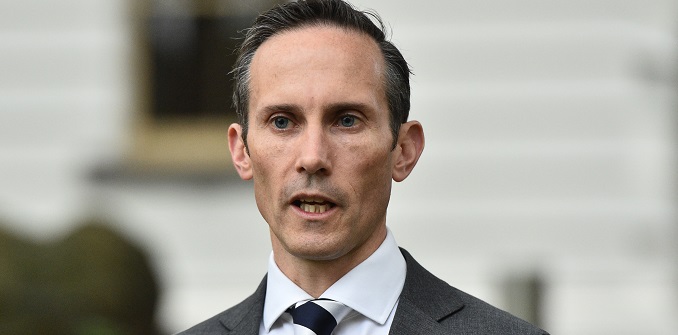
Shadow assistant Treasurer Andrew Leigh. Source: AAP.
Selected small-business advocacy groups will be empowered to direct the nose of the competition and consumer watchdog if Labor wins the next election.
Under a new policy, the ACCC will be required to investigate issues such as dodgy power bills and unfair contract terms at the behest of “super-complaints” made by selected groups.
Shadow Assistant Treasurer Andrew Leigh says Labor will look to legislate the policy in its first year of government if elected and hold consultations to establish which groups to bestow the new powers to.
“[Small businesses] have a voice but I think we can do better in making sure peak bodies are empowered and their voices are heard on real issues of concern,” he tells SmartCompany.
Leigh says the Council of Small Businesses of Australia (COSBOA) or the Australian Small Business and Family Enterprise Ombudsman (ASBFEO) would be invited to apply.
The proposal is inspired by a similar scheme in the UK where the Competition and Markets Authority (CMA) is required to investigate and publicly respond to super-complaints made by approved consumer groups within 90 days.
It was designed to direct the focus of the regulator and was recently utilised to kick-start an investigation into rollover contracts in financial services and telecommunications products.
Perceived ACCC inaction has been a pain point for many small businesses in recent years, especially in relation to concerns about online travel agents and their partner contracts.
The ACCC has since re-opened an investigation into online travel agent contracts.
A limited version of the super-complaints scheme in NSW has already seen consumer group CHOICE lodge claims about free-range eggs with NSW Fair Trading.
COSBOA chief executive Peter Strong welcomed the proposal, saying contract terms, commercial leasing and superannuation scams would be the likely targets.
“This is good news as we need better ways for complaints to be handled — faster and with less process and red tape,” he tells SmartCompany.
But Strong also notes there are resource concerns that need to be considered from the perspective of the ACCC.
In the UK, there has previously been concern super-complaints could be abused by approved groups, directing the regulator in ineffective and politically motivated ways.
Leigh says Labor has been following developments in the UK closely and initial concerns haven’t played out.
Although he concedes Labor hasn’t consulted with the ACCC on the policy proposal yet.
“My guess is, in general, regulators aren’t inclined to love policies which require them to respond to super-complaints,” he says.
The ACCC declined to comment.
Late last year the CMA in the UK backed the super-complaint made about rollover contracts.
NOW READ: The dark side of online travel booking: Fed up small businesses call for ACCC action
NOW READ: Ombudsman, ACCC push for financial penalties for unfair contracts


COMMENTS
SmartCompany is committed to hosting lively discussions. Help us keep the conversation useful, interesting and welcoming. We aim to publish comments quickly in the interest of promoting robust conversation, but we’re a small team and we deploy filters to protect against legal risk. Occasionally your comment may be held up while it is being reviewed, but we’re working as fast as we can to keep the conversation rolling.
The SmartCompany comment section is members-only content. Please subscribe to leave a comment.
The SmartCompany comment section is members-only content. Please login to leave a comment.